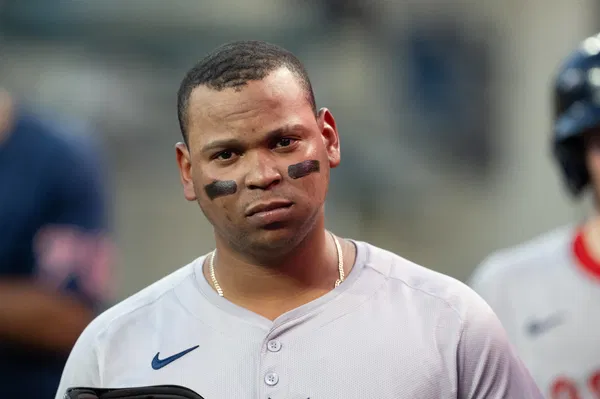
Red Sox manager Alex Cora had repeatedly stated that there were no plans to move Rafael Devers from his role as designated hitter. But as it turns out, a quiet discussion had already taken place behind the scenes. Red Sox chief baseball officer Craig Breslow had in fact talked with Devers about shifting to first base following the injury to Triston Casas. Devers confirmed this himself, signaling that the situation had more complexity than initially believed.
Inside the Red Sox clubhouse, the atmosphere reportedly shifted when word of the conversation got out. According to MLB insider Gabrielle Starr, some players reacted negatively upon hearing the news. Tension within the team began to surface.
This issue traces back to when Devers was asked to move from his longtime position at third base to designated hitter after the team brought in Alex Bregman. Though Devers didn’t welcome that decision, he accepted it. Now, with Casas injured and the team short-handed at first base, Breslow approached Devers about changing roles again—but this time, Devers refused.
Some in the league have defended Devers, saying he has every right to set boundaries after compromising once. Others, however, feel that his unwillingness to shift positions again is selfish, especially when the team is facing adversity and needs its stars to step up.
Within the clubhouse, opinions seem to vary, but what’s clear is that internal relationships could be strained. The perception of Devers as a leader might take a hit if teammates see him putting personal preferences above team needs.
This is not the first time Devers has been at odds with the organization over his role. During the third base debate, he was reportedly upset about losing the hot corner to Bregman. Now, with the club again asking for positional flexibility, many expected Devers to show a team-first attitude. Instead, his refusal has created a stir.
Adding to the drama is Devers’ underwhelming start to his designated hitter role. In his first five games after the change, he went hitless (0-for-19) with 15 strikeouts. However, he’s since bounced back with six home runs, 25 RBIs, and 23 runs scored.
Physically, Devers’ build differs significantly from Bregman’s. Bregman is quick, agile, and well-suited for third base, while Devers is bulkier and less mobile. Third base demands speed and lateral movement, which isn’t Devers’ strength. That’s why some view first base as a more natural fit for him.
First base doesn’t require the same range or agility, making it a more forgiving position for Devers’ body type. While his resistance to change might stem from a desire to protect his role or pride, a switch could actually benefit both his performance and the team.
As the Red Sox try to push through the season without Casas, this internal dilemma over Devers’ position could affect more than just lineup strategy—it could shift the dynamics within the clubhouse.